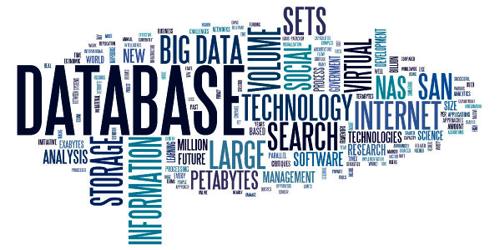A database is an organized collection of data. The data is typically organized to model aspects of reality in a way that supports processes requiring information. Simply, it is a structured set of data held in a computer, especially one that is accessible in various ways. For example, modelling the availability of rooms in hotels in a way that supports finding a hotel with vacancies.
A database is a collection of information that is organized so that it can easily be accessed, managed, and updated. In one view, databases can be classified according to types of content: bibliographic, full-text, numeric, and images. More specifically, a database is an electronic system that allows data to be easily accessed, manipulated and updated. The following are examples of database applications:
- computerized library systems
- automated teller machines
- flight reservation systems
- computerized parts inventory systems
In computing, databases are sometimes classified according to their organizational approach. The most prevalent approach is the relational database, a tabular database in which data is defined so that it can be reorganized and accessed in a number of different ways. A distributed database is one that can be dispersed or replicated among different points in a network. An object-oriented programming database is one that is congruent with the data defined in object classes and subclasses. Modern databases are managed using a database management system (DBMS).















